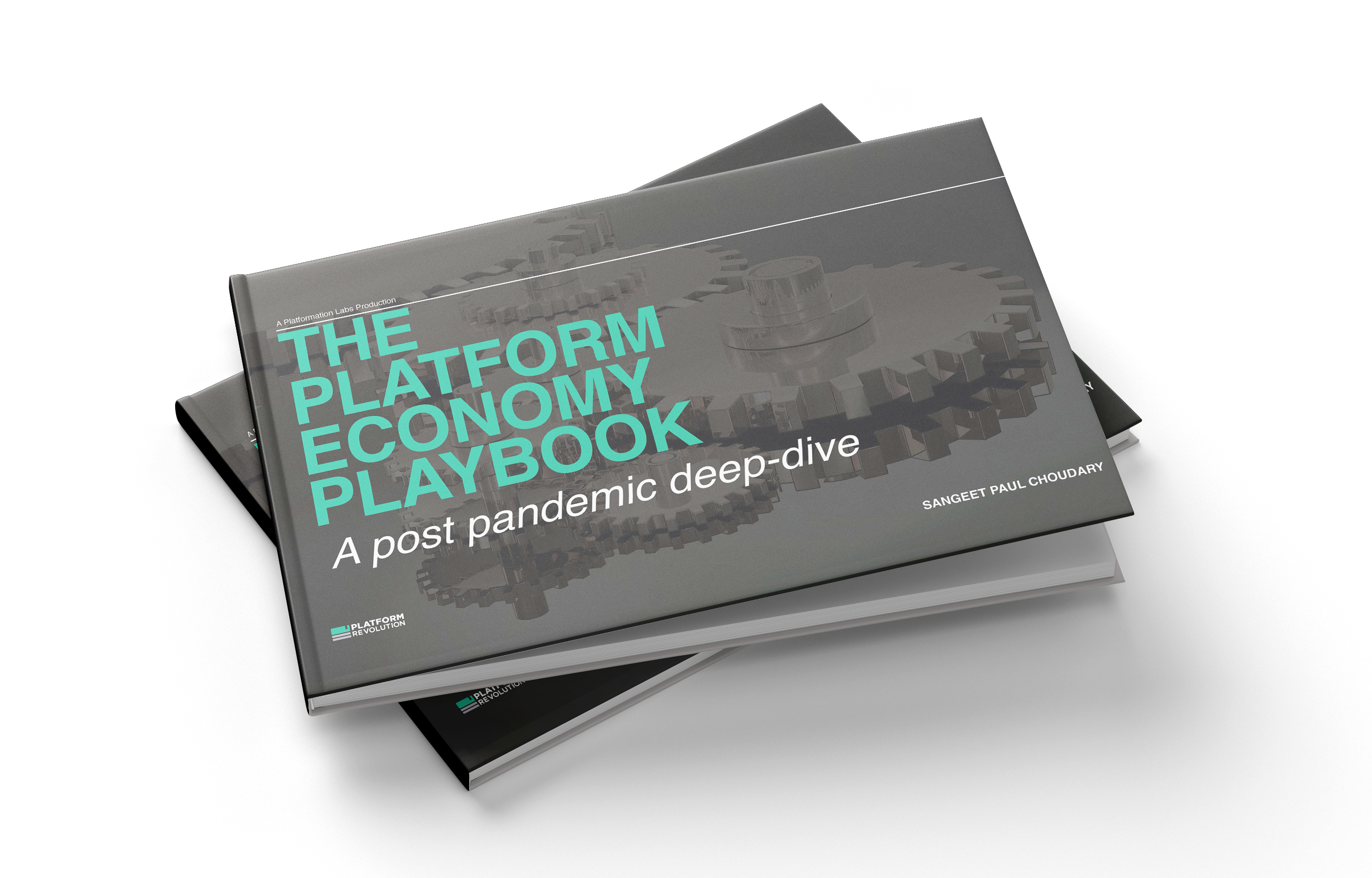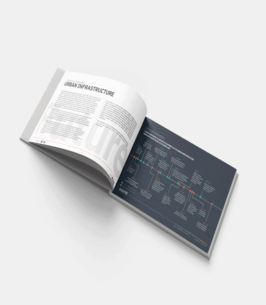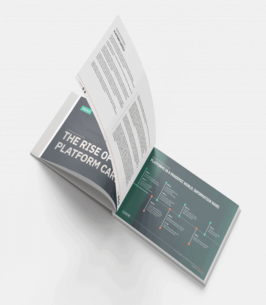Digital Transformation
Managing trust in your partner ecosystem
How do we ensure fair governance in managing ecosystem relationships?
This article is part of the Digital Platforms hub
Platforms that require partners to commit resources towards open innovation on the platform need to additionally build innovation trust.
Development platforms, for instance, require significant commitment and investment from developers who come on board. These developers – both freelancers and businesses – are investing to build their business on the platform and are particularly concerned about the platform owner and sponsor’s commitment: what if the platform owner is not committed to the success of the platform in the long run and ceases further investment into the platform if it does not take off? What if the developer has already invested in creating applications and the platform owner suddenly calls off further investment?
To solve this dilemma for developers, a platform firm must signal its commitment to long-term investment into the platform. When Microsoft launched the Xbox, it publicly announced its commitment to spend $500 million promoting the new gaming platform. Along with Microsoft’s brand, this commitment helped attract third-party game developers to the emerging platform.
Many Web3 platforms today achieve this through issuing tokens, which grant partners an ownership stake and future upside based on the success of the overall ecosystem.
Feel Free to Share
Download
Our Digital Platforms Hub
- Leverage our extensive library of ecosystem maps created across different industries
- Identify the accelerating forces to compete in ecosystems
- Design a structured approach to winning with digital platforms
- Determine potential value pools and digital platform models in your industry
Some platform firms may also set up an application development fund, aimed at rewarding developers who build apps on the platform. At the launch of the iPhone, Apple declared the iPhone iFund which rewarded early developers. The Slack Fund and the Alexa Fund similarly encouraged developers to come on board and create applications and extensions to the platform.
Finally, platforms may also signal innovation trust by inviting partners to participate in the upside of the platform’s success. Many Web3 platforms today achieve this through issuing tokens, which grant partners an ownership stake and future upside based on the success of the overall ecosystem. Some platforms may also offer equity ownership. Stocksy – a platform on which professional photographers license their creations – is structured as an artist-owned cooperative which distributes profits to producers so that producers get dividends and own equity in the business.
As the examples above illustrate, a platform relying on ecosystem partner innovation must build trust by ensuring that ecosystem partners investing in the platform participate
in future upside while also incurring limited downside.
To build a high trust environment for ecosystem partners, a platform firm must:
- Signal its commitment to long-term investment into the platform
- Set up an application development fund
- Invite partners to participate in the upside of the platform’s success
👈 Previous article on Digital Platforms Next article on Digital Platforms👉
Frequently Asked Question
Question: How do platform firms assess and mitigate the risks associated with offering incentives such as application development funds or equity ownership to ecosystem partners? Are there potential drawbacks or unintended consequences to consider, particularly in terms of governance and fairness in managing ecosystem relationships?
Assessing and mitigating the risks associated with offering incentives such as application development funds or equity ownership to ecosystem partners is a crucial aspect for platform firms. While these incentives can foster trust and encourage partner participation, platforms must carefully consider potential drawbacks and unintended consequences. This may involve conducting thorough risk assessments to identify potential conflicts of interest or governance challenges. Additionally, platforms may need to establish clear guidelines and policies to ensure fairness and transparency in managing ecosystem relationships. For example, they could implement mechanisms for evaluating the performance and impact of funded projects, as well as mechanisms for resolving disputes or addressing concerns raised by partners. By proactively addressing these issues, platform firms can mitigate risks and build stronger trust with their ecosystem partners.
Question: Can you provide examples of platform firms that struggled to maintain trust with their ecosystem partners despite implementing strategies to signal long-term commitment or offering participation in the platform’s success? What factors contributed to the erosion of trust, and how could these challenges have been addressed or prevented?
Examples of platform firms that struggled to maintain trust with ecosystem partners despite implementing trust-building strategies may highlight challenges in governance and communication. For instance, a platform may face criticism if it fails to deliver on its commitments or if there is perceived favoritism in the distribution of incentives. Additionally, changes in leadership or strategic direction within the platform firm could lead to uncertainty and undermine partner trust. To address these challenges, platforms could prioritize transparent communication and stakeholder engagement, ensuring that partners are kept informed about the platform’s plans and initiatives. Moreover, platforms may benefit from establishing mechanisms for soliciting feedback and addressing partner concerns in a timely manner, thereby fostering a culture of trust and collaboration.
Question: In what ways do platform firms navigate conflicts of interest or power imbalances that may arise when inviting partners to participate in the upside of the platform’s success? How do they ensure fairness and equitable distribution of benefits among ecosystem participants, especially considering varying levels of contribution and investment?
Navigating conflicts of interest and power imbalances when inviting partners to participate in the upside of the platform’s success requires careful consideration of fairness and equity. Platform firms must strive to create governance structures and incentive mechanisms that promote fairness and balance among ecosystem participants. This may involve implementing policies to prevent monopolistic behavior or unfair advantage among partners, as well as mechanisms for ensuring equitable distribution of benefits. For example, platforms could establish clear criteria for allocating equity or rewards based on partners’ contributions and impact on the ecosystem. Additionally, platforms may need to provide channels for partners to voice their concerns and participate in decision-making processes, thereby fostering a sense of ownership and accountability within the ecosystem. By addressing power imbalances and promoting fairness, platform firms can build trust and collaboration among their ecosystem partners.
State of the Platform Revolution
The State of the Platform Revolution report covers the key themes in the platform economy in the aftermath of the Covid-19 pandemic.
This annual report, based on Sangeet’s international best-selling book Platform Revolution, highlights the key themes shaping the future of value creation and power structures in the platform economy.
Themes covered in this report have been presented at multiple Fortune 500 board meetings, C-level conclaves, international summits, and policy roundtables.
Subscribe to Our Newsletter













